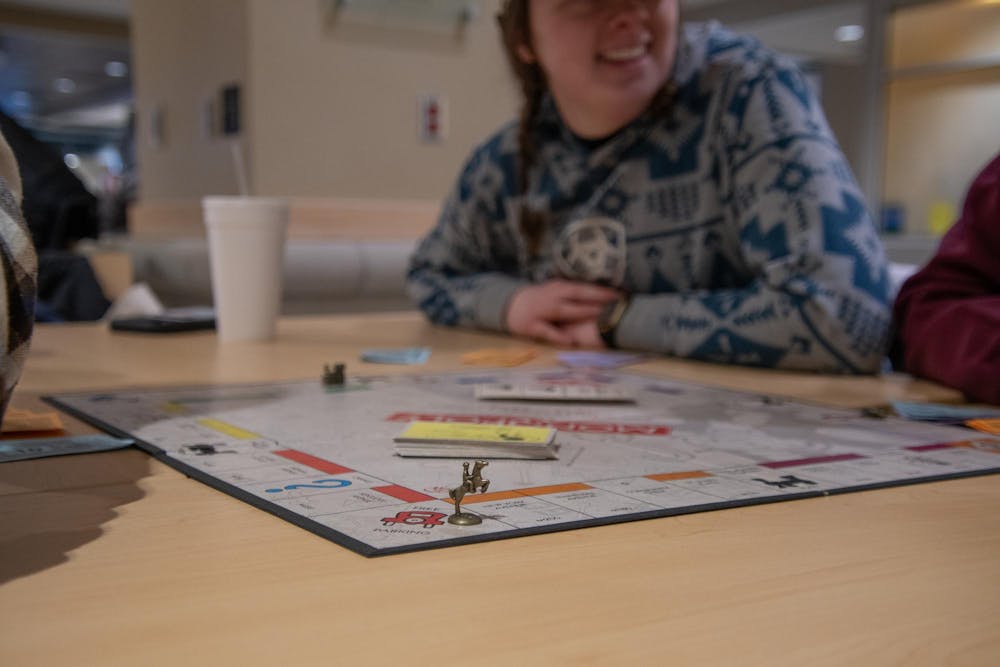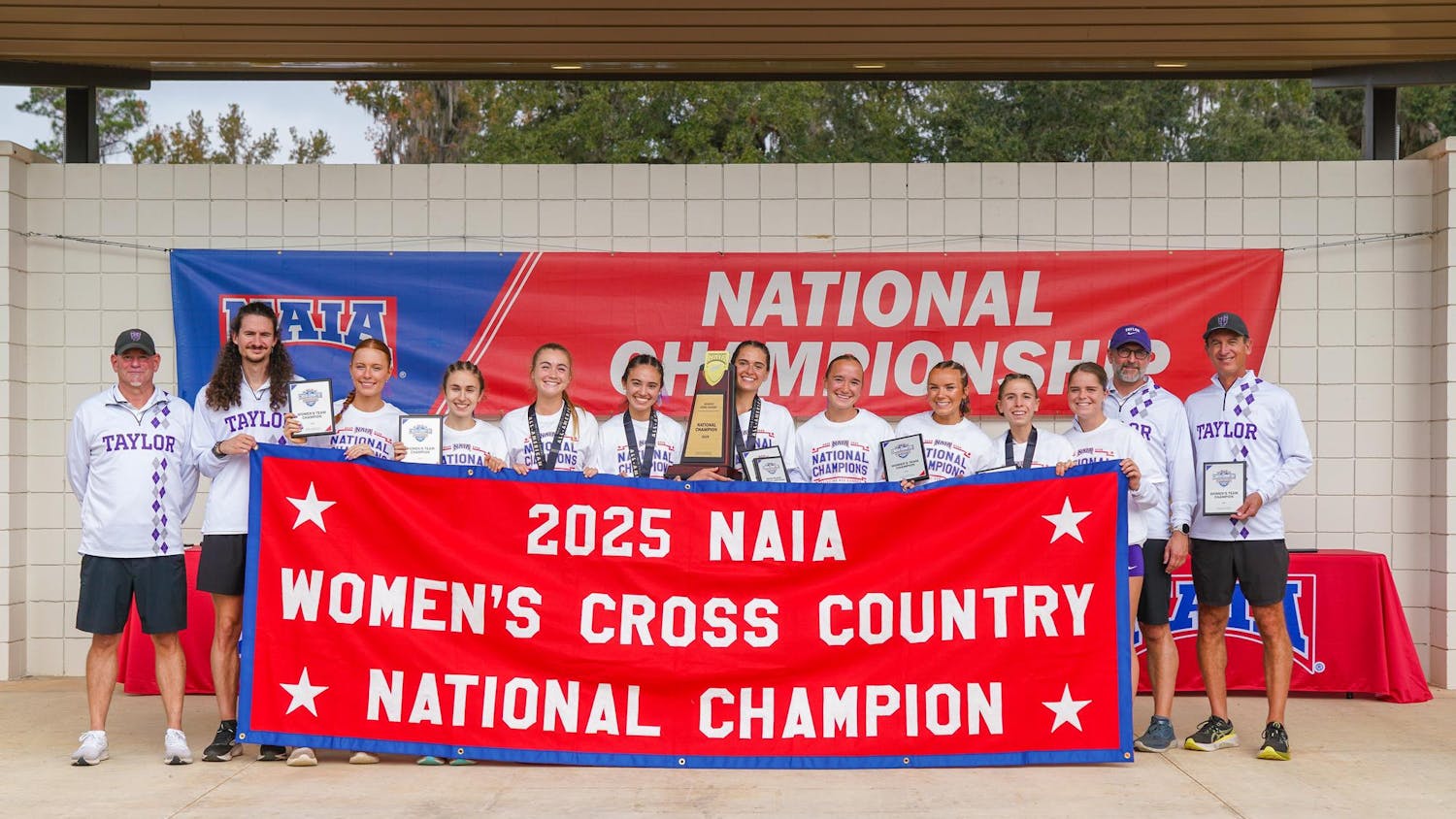“You don’t realize how much you’re learning when you’re learning it through a game,” Professor Jakob Miller, associate professor of Political Science at Taylor University said.
Miller co-taught Taylor’s History and Politics Through Board Games course over J-term with Professor Elizabeth George, who teaches political studies classes at Taylor. The three-credit class is taught every other J-term, fulfilling either a history or political science credit.
George longed to create a class where students learned about historical events through interactive play, Miller said. They collaborated, birthing History and Politics Through Board Games.
For this class, George and Miller found unique, educational board games, such as 1775 and Operation F.A.U.S.T., to teach students about history and political science. These games, typically requiring war strategy and negotiation, occurred during the Revolutionary War and World War 2. Miller said these games enabled students to re-enact political principles and historical events they discussed in class.
Learning through games builds empathy through visualization, Miller said.
“That moment of sitting in their shoes...makes it personal,” he said. “It's easier to understand why people did what they did to understand why history played out the way it did.”
Miller said he loved class moments when students had so much fun playing games, they didn’t realize they were subliminally learning about political structures and historical time periods.
Taught for the second time this J-term, History and Politics Through Board Games quickly gained traction. The class was so popular both Miller and George had to turn down many students adding the class. Miller said students told him it was the best class they’d taken at Taylor.
Caleb Chastain, a junior social studies education major who took History and Politics Through Board Games this J-term, said he enjoyed the class.
He loved learning about the subliminal messages many educational board games communicate to their audience. He said agendas, such as support for certain political structures or a certain view of humanity, often support the framework these games operate on.
Understanding the assumptions and beliefs about reality many educational games operate on reveal the game maker’s underlying worldview, Chastain said.
“Understanding a person's worldview or perspective is very important,” he said.
Chastain also believes that learning through board games enabled him to realize why certain people in history acted the way they did and built his empathy.
He said that realizing education doesn’t have to be constrained to traditional methods was helpful, as a future teacher.
Mia Gamble, a sophomore political science, philosophy and economics (PPE) major who took the class, said its creative format should inspire others to teach more creatively. Not everyone learns best through traditional mediums, such as textbooks and reading assignments, she said.
“People have different learning styles,” she said. “Some types of people need more hands-on things. Playing games is a great way to do that.”
Gamble recommended anyone interested in a fun J-term class take History and Politics Through Board Games.
“You get to learn, you get to meet other people, and you get to have a lot of fun,” she said.





